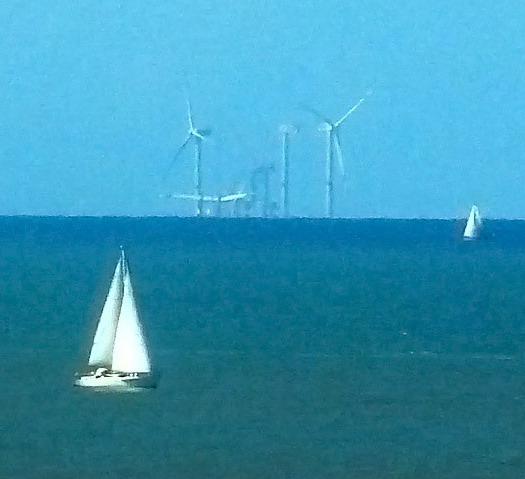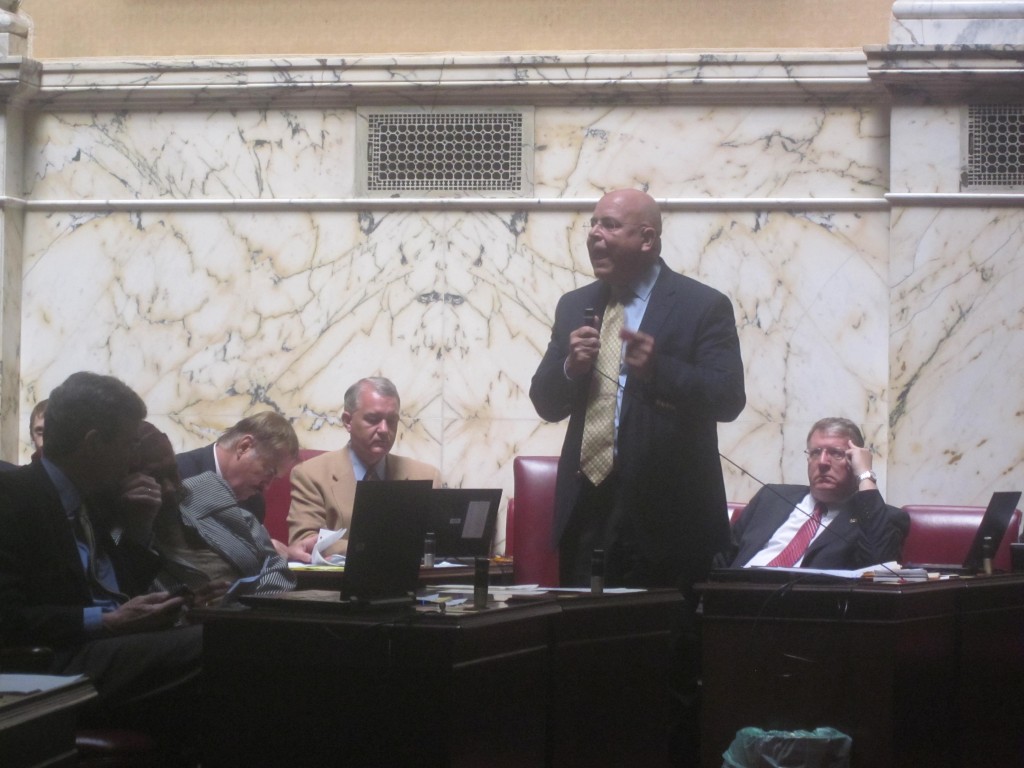Offshore wind: a valuable investment or a waste of money?
By Ilana Kowarski
[email protected]
The Maryland Senate gave its approval to offshore wind energy on Friday, but not before a heated debate questioning whether it is a wise decision for the state to subsidize and invest in the developing technology.
Proponents of HB 226 described it as a forward-looking law that would pave the way for energy independence and reduce the emission of greenhouse gases by capitalizing on an environmentally friendly source of electricity. Opponents described the bill as “corporate welfare” and a boondoggle for taxpayers.
The bill passed 30-15 in the Senate and 86-48 in the House of Delegates last month. The measure, proposed by Gov. Martin O’Malley, now goes back the House to approve or reject the Senate amendments.
Supporters and opponents both referenced the analysis of the non-partisan Department of Legislative Services to bolster their arguments, quoting the department’s calculations differently depending on political perspective. Offshore wind advocates said that the technology would cost each Maryland family $1.50 per month in additional electricity bills, and the policy’s detractors totaled these costs and said that Maryland citizens would pay $1.7 billion for 20 years of wind technology.
‘World’s most expensive energy’
Senate Minority Leader E.J. Pipkin opposed the bill in a speech that lasted over an hour.
“This is the dumbest idea ever,” Pipkin said. “I supported onshore wind, so I’m not just the guy at the front of the room that says no to everything, but I will repeat, this is the dumbest idea ever… We’re not supposed to use the power of the state to benefit a tiny group of investors. That’s the definition of corporate welfare.”
Pipkin said that very few companies had the expertise necessary to create offshore wind technology and that most of these companies were not American. Therefore, the wind energy industry would create more jobs in Europe than in Maryland, Pipkin said, adding that he did not believe that the industry could provide the economic stimulus that Gov. Martin O’Malley has promised will occur if Maryland attracts renewable energy companies.
Pipkin warned that the governor risked creating an energy monopoly and argued that the proposed offshore wind subsidies were unprecedented in magnitude.
“Never in the history of Maryland have people paid so much for the benefit of so few,” Pipkin said. “This is the world’s most expensive energy.”
Report: Cost will go down as technology develops
The Center for American Progress, a liberal policy group, disputed this argument in a Feb. 28 report called Making the Economic Case for Offshore Wind.
The report’s author Michael Conathan said that offshore wind was “a key means of diversifying and developing our domestic energy portfolio” and he said that the economic arguments against the technology are misleading.
“As with any new product or technology, the first U.S. offshore wind farm will undoubtedly face steeper costs for construction and development. As industries develop, however, experience, technological developments, and economies of scale will cause those costs to decline,” Conathan wrote. “Such is the case with everything from energy development to consumer electronic products – flat-screen televisions, for example. The question is not, then, whether the cost of offshore wind energy will come down but rather how quickly.”
Conathan reminded his readers that the United States had given billions of dollars in subsidies to the emerging oil and natural gas industries, and he argued that it was not so farfetched to do the same for offshore wind.
Supporters said offshore wind is forward-thinking investment
Democrats in the Maryland Senate made a similar case for offshore wind, comparing the state’s investment in wind power to the American investment in the national space program.
Sen. James Mathias, a Democrat whose Lower Shore district includes Ocean City, said that he strongly supported the offshore wind legislation.
“I believe in the bill, and you know why? Because this is a bill that looks forward,” Mathias said. “I’m proud of this bill, and I’m going to vote for it, because I believe in the system. When the country wanted a National Highway System, we as citizens had to pay, and when John Kennedy proposed a space program, we had to pay, and it was worth it.”
Sen. Katherine Klausmeier, D-Baltimore County, expressed a similar sentiment in her speech.
She compared offshore wind technology to the New York subway system, arguing that both were critically important technologies that required state support.
“We’ve got to try this. We’ve got to move forward,” Klausmeier said.

MarylandReporter.com is a daily news website produced by journalists committed to making state government as open, transparent, accountable and responsive as possible – in deed, not just in promise. We believe the people who pay for this government are entitled to have their money spent in an efficient and effective way, and that they are entitled to keep as much of their hard-earned dollars as they possibly can.


